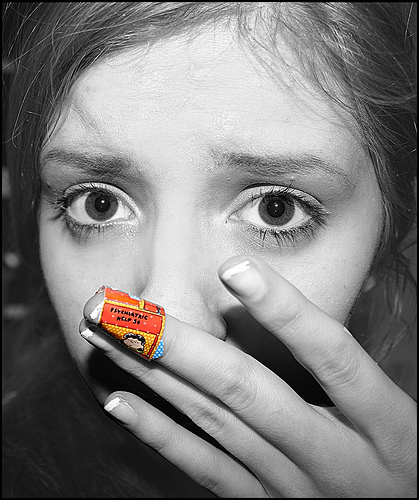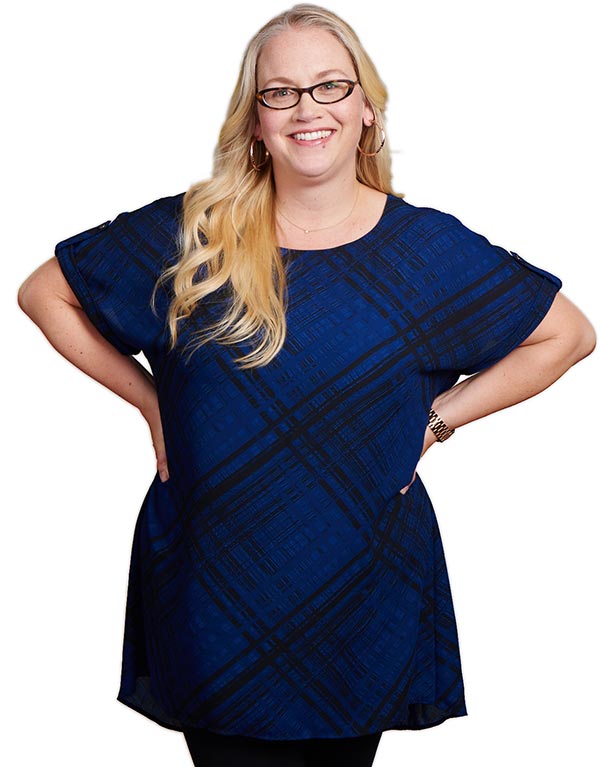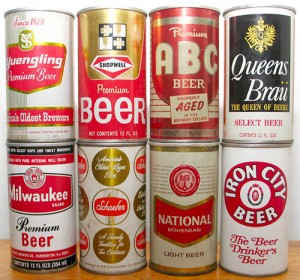“Is my problem bad enough to require therapy?” That’s the question I recently got from HealthyGirl.org reader Katie, 16. Can you guess what my answer’s gonna be?  Please read on, and weigh in with your own.
Please read on, and weigh in with your own.

How sad or out of control do you have to feel to deserve help?
Q: Lately I’ve been wondering if my problems with eating are severe enough to require therapy. I go back and forth, one day I will feel overwhelmed and a strong desire to get help, but by the next day I’ll have convinced myself that I’m fine.
I went into a phase this fall/winter where I felt pretty depressed, and my eating patterns became more disarrayed. Out of guilt I began to restrict more heavily during the day, and eat more at night. I ended up purging a few times. Recently, I’ve been able to turn around the bingeing a little. I still will eat more than necessary if I’m feeling overwhelmed, but it doesn’t go as far as it used to
I still obsess over calories, restrict during the day. But at the end of the day, I’m getting a healthy amount of calories. I’m not sure if my behaviors are enough to warrant treatment; however, I wonder if I should get help for the emotional/internal aspects of all this.
I don’t think my mindset is good, and this possible disorder plays with my emotions. I’m struggling to get schoolwork done and I have less patience with people. I’m afraid to tell my parents. And while I sometimes want to change all this, I’m afraid to let go of my obsession. I feel so successful when I’ve restricted my food intake (even though I usually end up counteracting that with bingeing).
Sometimes I just feel like this is all an exaggeration somehow, that I don’t really have a problem and maybe my words are too strong when explaining this. So I would love to hear your opinion, if possible. —Katie
A: Hi Katie—first, let me just tell you that you’re brave for reaching out. Second, let me just tell you: It’s NOT an exaggeration! Just because you are not on the edge of death from starvation or obestiy doesn’t mean you don’t deserve help to recover from a food problem.
Let me say your own words back to you and you tell me: You said you felt “pretty depressed,” that you “obsess” over food and calories, you’ve purged and you don’t think your “mindset is good.” All of that makes me believe strongly that food and eating issues are negatively impacting your life. You even said yourself that you’re struggling to get schoolwork done and are feeling moody toward people.
What would you tell a friend who admitted all of these things to you? Wouldn’t you lovingly tell her that she deserves to feel better? That she deserves to get help so that she can be happier and healthier and start getting sane about food? YES! I’m not a therapist, but from what you describe, there is an official name for food issues like yours:
eating disorders not otherwise specified (EDNOS). It’s a real thing, with a real entry in the
Diagnostic and Statistical Manual of Mental Disorders.
Now, let me open it up to the rest of the HealthyGirl.org community: Have you ever felt like Katie, that you were making too big a deal out of your food issues and should just shake them off? How did you realize that it really was important and worth tackling? xo…Sunny
For a new food-sanity or body-sanity tip every day, follow @hlthygrl on Twitter!
Posted under Q&A on Jun 2, 2010
 Please read on, and weigh in with your own.
Please read on, and weigh in with your own.





It took me some time to properly admit to myself that there was something wrong in the way I was eating and in my relationship to food.
When I first seriously set out on a diet, it worked in helping me lose weight. By the time I developed an EDNOS/anorexic behaviours, I was too far gone to be able to see that I needed help. I also felt that losing weight had been my choice, so it was my problem, so to speak. When the bingeing began as I realised my low weight wasn’t making me happy - I was seriously depressed by this time - I spiralled into all kinds of issues. Suicidal thoughts was what finally led me to seek help. Unfortunately, my experience of help at that point wasn’t the best, and it took some time for me to reach out again and get more appropriate help for me.
Looking back, I wish I’d asked someone for a little help or advice the moment I realised my eating was controlling certain aspects of my life and causing little anxieties. For me, this would have been as early as a few months into my dieting, when I stopped going for meals or drinks with friends, or when I came home from my summer camp job because of my anxiety around other people planning my mealtimes. This might have stopped me from falling quite so deep into disordered eating.
As it is, I think it can take time - and sometimes several attempts - to ask for help and get the sort of support that works for you. I’ve found that, over time, I have become more confident in asking for help and support. Despite my negative experiences of approaching my GP, I’ve since approached other GPs who have been very kind and understanding. I’ve accessed counselling. Sometimes, you may find this useful and sometimes you won’t. Sometimes you’ll find counsellors that suit you, and sometimes you might have to try a few out. Sometimes, you might not be prepared to actually ‘work’ and do the hard graft, even if you think you are. Other times, you’ll make lots of little breakthroughs. I’ve been to groups for sufferers and self-esteem classes. I’ve even arranged meetings with girls from my self-esteem/ED groups and read countless self-help books.
I am currently a million times better than I was when I started out on this vicious cycle and much of this is due to the help and support I’ve received.
Please don’t wait until it’s that bit worse or that bit harder to seek out help - the sooner you ask for help, the sooner you will get it and you will be on your way to a healthier relationship with food.
Thank you for this, Heather. I love your honesty. It’s so true that recovery comes in fits and starts-and it’s so different for everyone. xo…Sunny
I am happy for you and your recovery, and this was a reinhsefrg blog post to read, compared to my own (I am EDNOS as well, and have my own pro/support blog, therefore I won’t link it.)Personally, I see recovery as the hardest thing (rather than as a sigh of relief), especially in terms of the mentality it takes to reach that decision actually wanting recovery. Sure, I wish I were “normal” and didn’t have this problem with food/calories/purging/self image/socializing/etc, but I do, and I pretty much always have. I do not yet seek recovery. I am still in the mind of “This will make me happy, I’m almost there!” But am I ever happy? No. Will I ever be? I hope so. I wish for more of a mental-recovery rather than ED-recovery this is probably nonexistant I feel, for myself, the (physical part of an) ED can disappear, but the mentality of it never will.This is most likely denial on my part. As you know, it’s another battle.I am currently reading your book it’s as if it is my own reflection. At times, hard. Others, relieving because I know it’s a true fact that I’m not alone in this alternate world.One day (this I know) I will be able to write as liberating a post as you have. Just no time soon.
Wow Katie, this sounds very similar to how I feel. I’m almost 18, and I’ve been struggling with food more so over the past year. Because I can’t really pinpoint the cause of my EDNOS (no traumatic experiences, etc) I sometimes try to convince myself that I am fine, I am just going through a phase, and it’ll pass. After all, my life is perfectly normal, so I must just be exaggerating, right? I realized within the last couple months that something was seriously wrong, however. I am just rarely happy and I KNOW the cause of that: my relationship with food. If I am having an off day with food, it cannot be reversed and I end up miserable the rest of the day. This is not how a “normal eater” would react, and I’ve realized that. I suppose that is how I recognized my problem, and I am still working on sharing it with others for fear that they will think I’m exaggerating. I know it’s not a quick fix, so when I share it with someone, I want it to be with someone who can truly help me on a path to recovery. For now, blogs like this and one special friendship is all th that keeps me sane in my relationship with food. I wish you the best of luck on your journey!
Feel free to email me if you’d like, it’s nice to open up to a peer about this
[email protected]
Thank you for sharing, Hope! Reach out to us anytime you need support. xo…Sunny
It is so hard to realize there is something wrong with and something you can do about your eating. There are so few women out there who are normal about eating. i’ve been bouncing between binge eating and anorexia for the past 12 years. It took 2 bad experiences with therapists, ruining most of my relationships, wasted high school and undergrad, and never learned how to learn or have fun before i found a good therapist and started to realize i had eating issues. i had recognized my depression, and i knew my binge eating was a problem. I was in such denial when i was anorexic that one of my therapists yelled at me that eating a pound of carrots was not excessive eating. Soon after that I was switched to a more patient therapist, i started binging and i started realizing ALL my issues. Two years later, I am still binging because it feels better than dealing with all my anxiety but my relationship with food is so much better. I have started being able to eat relatively normal food occasionally. More importantly, I am starting to be able to eat in front of other people! Get help if you want and need it. I am a slow case. it seems most people start to control their binging a lot more quickly than me. But therapy helps so much. And we’re human - we need other people.
I feel like what I am dealing with is very similar to Katie’s issues. I’m going to be 18 in July and I have been dealing with what I assume would be classified as EDNOS since I was 14 or so. Last summer it got particularly bad an spiraled from there. Like Katie there is nothing to pinpoint it to. I go through periods of restricting and binging and purging and as much as I know the behaviors are wrong whn I work up the courage to ask for help I always stop myself.
My mom has admitted to dealing with EDNOS since she was in high school. She is vaguely aware of my issues with food but not extremely so. She has never sought therapy because she says she has no desire to change her habits. I feel like she doesn’t uderstand that I see how miserable she is around food and that she can’t see why I don’t want to live like her forever.
If only I had a buck for each time I came to healthygirl.org… Amazing post.
Deb, I am so sorry to hear about your friend. Hugs~Hmm..I’m trnyig to think why I have issues with eating, body image, etc..Could it be I had a Uncle who called me ” Porky” when I was very young. Started dieting under 10. Had this guy in HS tell me I had a fat ass. Too many more to mention. Having just getting braces as u know Deb doesn’t help the way I feel about my appearance…Just makes me feel worse. Food=Comfort and I can’t even stuff my face with my favs bcause of the friggen braces! ugh.